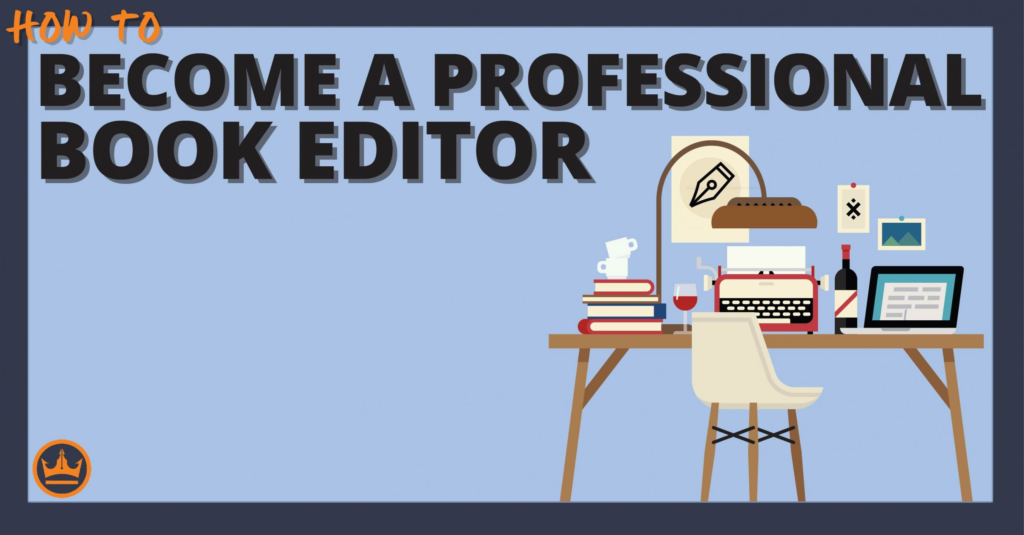
A book editor career is an aspiration for many wannabes who revel in words and narration. But what are you going to do to make that dream come true? In 2024, the publishing industry will be as alive as it has always been, and there will be openings as far as the hunkering for editing good books is concerned. This guide is aimed at providing you with guidance on how to go about Becoming a Book Editor and the initiation of your career as a magazine editor.
Understanding the Role of a Book Editor
Different Types of Book Editors

Different editors work within the book industry. Some people can even work in a developmental editor capacity, assisting the writer in crafting ideas and directing the story. Some might become copy editors, concentrating on the correctness and the flow of the text and the usage of punctuation. Then, some are proofs or last checks, and the final text is worked on before publication. The initial step of your journey is realizing this about yourself.
Skills Required to Become a Book Editor

To thrive as a book editor, one must pay attention to the fine details, correctly use the language, and know how to handle authors. An inclination towards books with an appreciation of feedback – particularly critiquing – is also critical.
The Daily Responsibilities of a Book Editor

\he Daily Routine Activities of a Book Editor Book editors do much more than reading manuscripts. Collaborating includes working with the author, borrowing and explaining the text, changing the content, and ensuring coherence through editing. Time management skills are essential; proper organization and good work habits are critical.
Educational Pathways Formal Education: Do You Need a Degree?
The most helpful degree might be in English in journalism or another related field, but it is only sometimes a must. Some editors who are pretty successful need such education. Editors base their passion on what they have taught themselves.
Relevant Courses and Certifications
If you are focused on becoming a book editor, consider completing courses in editing, writing, and publishing. Professional endorsements from well-regarded organizations will increase your standing in the industry and provide you with specialist opportunities.
Self-Education and Online Resources

By the end of 2024, the net will be a goldmine for persons working to become book editors. There are many outpatient learning1335 opportunities, such as blogs, podcasts, and online courses. These are relatively cheap, and sites such as Coursera, Udemy, and LinkedIn Learning offer such services.
Acquiring Skills
Internships and Entry-Level Jobs
It is crucial to get practical knowledge. Try to find an internship position with a publishing company, a literary agency, or a magazine. These positions often develop into full-time positions eventually and are great networking tools.
Freelance Editing: An Entry Point to the Profession
If getting an internship is not possible, one can always try as a freelance editor first. Freelancing would help you garner experience, create a portfolio, and meet authors.
Portfolio Building

A portfolio is much like an address card for you. It has to contain some editing samples that will depend on your expertise. If you are just in the initial stages of your career, think about volunteering for ordinary people, writers of all kinds, or even self-published ones to assemble your portfolio.
Mastering Core Competencies
Perfecting the Use of Grammar and Punctuation
Any editor worth their salt knows that grammar and punctuation are essential. Keep yourself updated on other style guides, such as the Chicago Manual of Style and the AP Stylebook.
Grasping the Story Composition and Flow
Excellent editors are more than just detail-oriented. They know how ‘stories’ function. Study story arcs, character progression, and pacing to help authors enhance their stories.
Engaging Writers

When it comes to being a good book editor, it is clear that one must know how to provide worthy and pleasant feedback. You will need to employ effective and gentle communication skills to have a good rapport with the authors you work with.
Equipment for Editing
The Computer-Related Programs for Book Editors

Learn about the type of tools that a majority of editors who want to get the job done properly use. A word processor will include Microsoft Word, where the Track Changes must be considered. Other applications, such as Scrivener, Grammarly, Perfect It, etc., will make your work easy.
Where to Get Innovative Information
The field of publishing does not stand still. Follow blogs associated with publishing, forums, and newsletters from major publishing houses.
Establishing Career Cycles
Becoming a Member of Professional Groups
Editorial Freelancers Association (EFA) and ACES: The Society for Editing are some examples of organizations that offer an arsenal of tools, employment, and relations that propel your career forward.
Participating in Writing and Publishing Conferences
These gatherings have been ideal since immemorial, where practitioners interact with others in the industry and gain knowledge and exposure.
Networking with Authors and Publishers

Effective networking is vital in the publishing field. Use social platforms like Facebook, LinkedIn, and Twitter or attend relevant functions to interact with authors, agents, and publishers.
How to Search for Book Editing Jobs
Applying for In-House Positions
In-house editing opportunities are available with publishing firms, literary agencies, and even a big corporate firm. Be creative and rework your CV and cover letter to emphasize your editing prowess and your understanding of the business.
Finding Clients as a Freelance Editor

Freelancing has its flexibility features, and some self-motivation and patience will be required. Platforms such as Upwork, Fiverr, or Reedsy provide opportunities to get clients, but it takes time to gain recognition.
Through Job Boards and Social Media Networks
Sites such as Indeed and Glassdoor, as well as editing jobs sites such as Publishers Marketplace, are great sources of job advertisements, especially contracts in editing. Publishers and literary agents should also be followed on social sites, where they advertise available jobs.
Advancing in your Career
Choosing a Specific Genre or Target Market
As you become more acquainted with the industry, you should focus on one particular genre or target market. This could be fiction, nonfiction, academic, or children’s books. It helps to have one area of focus for market needs: outsourcing professionalism.
Professional Development and Continuing Education

Adult education never ends. Enhance your knowledge by participating in relevant workshops and advanced courses and remaining in the loop.
Leadership Positions and Experience
As you gain more experience, you may have a chance to step up in responsibilities and take the role of a senior editor or an editorial director. There is also the possibility of nurturing the younger generation by training younger editors.
What it takes to be a Developmental Book Editor, even if it is a Book Editing Role
Possible Troubles: Book Editors Typically Endure
All book editors are used to working under pressure. They meet tight timelines, cope with messy writing, and edit materials when they are juggling too many projects. However, they learn how to organize themselves and managerial skills while working with some authors to define the scope of their tasks to overcome those aspects.
Pleasures Attained in a Book Editing Career
There is nothing tarnished when looking at a copy of an edited or finished stage approach in hand. The very thought that one believably understands that one indeed has a role in seeing the development of a narrative that will be in the hands of readers is gratifying. Furthermore, the bonds one tends to create with the authors and related individuals from the same or different industries are worthy and satisfactory.
Conclusion
The journey towards becoming a book editor in 2024 encompasses a lot of fun, passion, learning, and growth. You could either take the path of education now, begin freelancing, or start from the bottom, but one thing remains dedication and love of narrative. As happens with all fields, the book editors will also keep dancing along, aiming for more significant impacts as the changes in the publishing industry do.
FAQs
How much Money does a Book Editor Earn on Average?
The average salary for a book editor varies widely due to common determinants like experience, location, and even type of editing. In the U.S. Geographic area, it can be approximately $40,000–$80,000 annually.
Can You Become a Book Editor Without a Degree?
Yes. Many people try to attain an education related to this profession and don’t succeed, and some are simply unwilling to do it. Nevertheless, they end up being editors. Yet, for occupational purposes, having a degree may facilitate entry.
How Long Will It Take Me to Become a Book Editor?
The period in which one becomes a book editor is not constant. Given a degree, one’s entry maybe four to five years. Otherwise, without additional years, building the experience and portfolio will take time.
What are the said best online courses for those upon whom the editorial duties of a graduate book editor have been bestowed?
Some ideal online programs include those on sites such as Coursera, Udemy, and LinkedIn Learning. Identify programs that include introduction to editing, advanced editing, and editing for specific genres.
What Is A Copy Editor And A Book Editor? Explain The Difference.
In contrast, a copy editor specializes in grammar & punctuation or stylistics. In addition, to mend the book author’s language, a book editor also comments on the storyline, book structure, or content and collaborates with the writer to make a better manuscript.

1 comment on “How to Become a Book Editor in 2024: A Complete Guide”